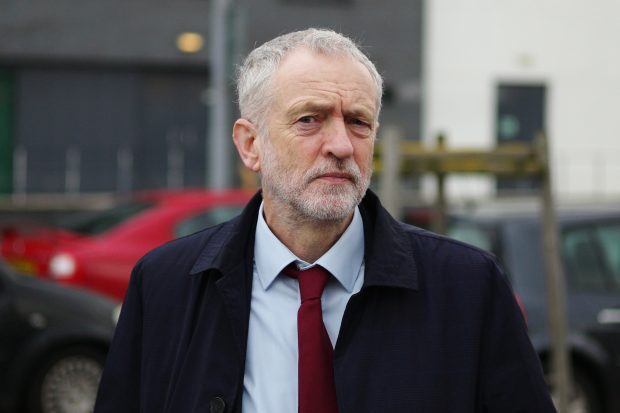In a move that is guaranteed to stir up opinion, Jeremy Corbyn said this morning that he would like to see a cap on the amount that people earn.
Speaking on BBC Radio 4‘s Today programme, the Labour leader said he thought introducing the limit would be ‘the fairer thing to do’. He added that he was ‘not wedded to a figure’.
Corbyn went on to say that Britain’s disparate levels of income were worsening, saying this cannot go on ‘if we want to live in a more egalitarian society…I would like there to be some kind of high earnings cap, quite honestly’.
Spending The Guardian reports that UK retail sales continued to rise at the end of 2016 thanks to the December demand for Christmas presents and food. While the British Retail Consortium signalled that there are future challenges related to rising costs and political uncertainty, it confirmed that the economy ended 2016 on a firm footing. Sales rose 1 per cent in December from the year earlier, on a like-for-like basis. Car hireThousands of British tourists could end up paying a lot more for their holiday hire car than they bargained for thanks to hidden extra charges they only discover once they reach the car hire desk to pick up their holiday wheels.
New rules by the Competition and Markets Authority regarding the display of pricing information to customers on car hire comparison and broker websites came into force last week. Car hire broker Zest Car Rental is of the opinion that some websites still aren’t showing the ‘transparent drive-away price’ they should be.
In other holiday news, new research from Sainsbury’s Travel Insurance & Travel Money has found that nearly 34 million people in Britain are planning overseas holiday escapes during 2017. The figures are almost identical to last year, revealing a resilience in the overseas holiday market despite a significant fall in the value of sterling against the US dollar, euro and other popular currencies over the past year which increases the cost of holiday spending money for British tourists.
Three in four adults are planning a holiday in the UK in 2017 – the same figure as last year.
Lending
Research released by money collection platform Leetchi.com sheds light on Britain’s money-lending habits. The research, conducted by YouGov, surveyed 2,500 people and reveals that people in Britain are owed an average of £1106.67 by their friends, family and co-workers. Money owed includes cash spent on food, drinks, events and amenities that has been loaned to someone you know with the expectation that they will pay you back.Income
The Office for National Statistics published its latest income data this morning. According to the BBC, the figures show that the richest fifth of households saw real incomes fall back last year as pay came under pressure – the poorest were up £700 while the richest were down £1,000 a year. Meanwhile, typical household incomes rose £600 to £26,300 after tax, between 2015 and 2016.
Motor insurance
More than a quarter of drivers guess their annual mileage when applying for an insurance policy and risk overpaying on their car insurance, according to research from uSwitch.com, the price comparison and switching service. Drivers, on average, overestimate the distance between cities by 15 per cent, equating to an additional 1,185 miles more than the 7,900 miles typically covered by motorists every year. Annual mileage is one of the key factors insurers use when calculating drivers’ premiums, but just a fifth of drivers refer to their MOT certificates, which provides the previous year’s mileage, when applying for a car insurance policy. While overestimating your annual mileage could drive up your insurance premium, underestimating it could invalidate your cover. Broadband UK households could save an average of £322 per year by switching to a better broadband deal, yet 42 per cent have never changed broadband provider. That’s according to analysis by comparison site Cable.co.uk. Half of the household decision-makers interviewed by Cable.co.uk had not shopped around in order to save money on broadband in the last five years, while a further 35 per cent had only switched deal once during that time, losing a considerable amount of money in the process.





Comments